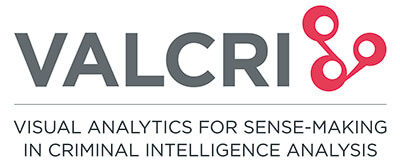

Linköping University (http://www.liu.se/) is exploring new fields and walking new paths. Since its foundation in the 1960s, the university has established itself as an innovative and modern institution in both education and research. It was first founded as an independent college in 1970, and in 1975 it became Sweden’s sixth university. Today, the university has 27,000 undergraduate students, 3,900 staff and faculty and a turnover of 3,200 MSEK.
The Department of Computer and Information Science (http://www.ida.liu.se/) was founded in 1983, but the roots go back to the early seventies. It is one of the largest departments for computer and information science in northern Europe, with about 195 employees of which about 63 are faculty members (PhDs), including 23 full professors. Approximately 77 postgraduate students are enrolled in the department’s PhD programs, including about 48 doctoral students holding salaried positions. Research at the department covers a broad spectrum of topics from core computer science to applications, including cognitive science, resilience engineering, human-machine interaction, decision support, interaction and service design, and artificial intelligence. The department gives courses within six engineering degree programs and three Master programs, as well as the computer science, cognitive science and teacher training programs.
PARTNER TECHNOLOGIES / CAPABILITIES BROUGHT TO PROJECT
Ontologies; semantic web; complex-event processing; decision-support systems; resilience engineering; sense-making; human-machine interaction.